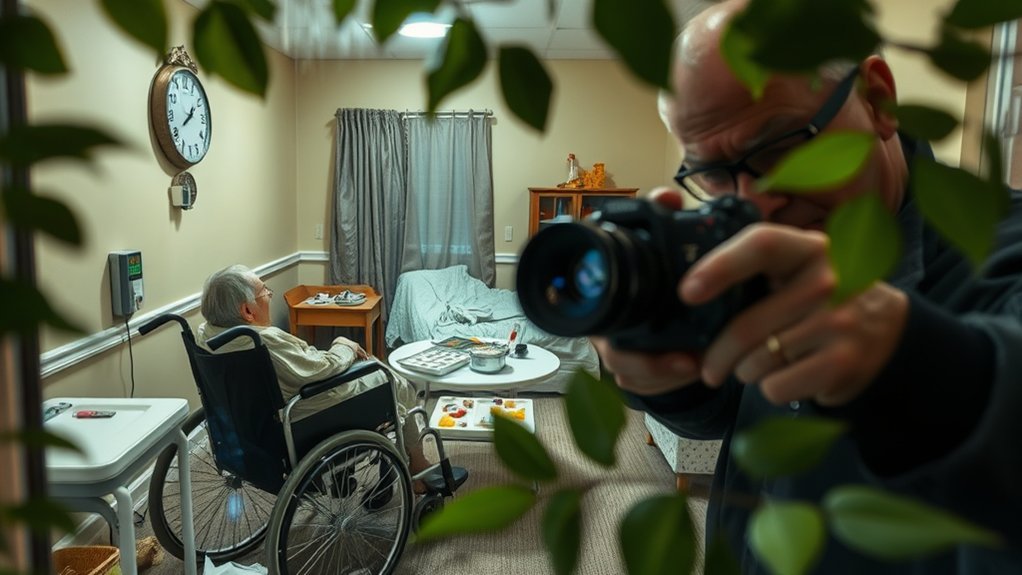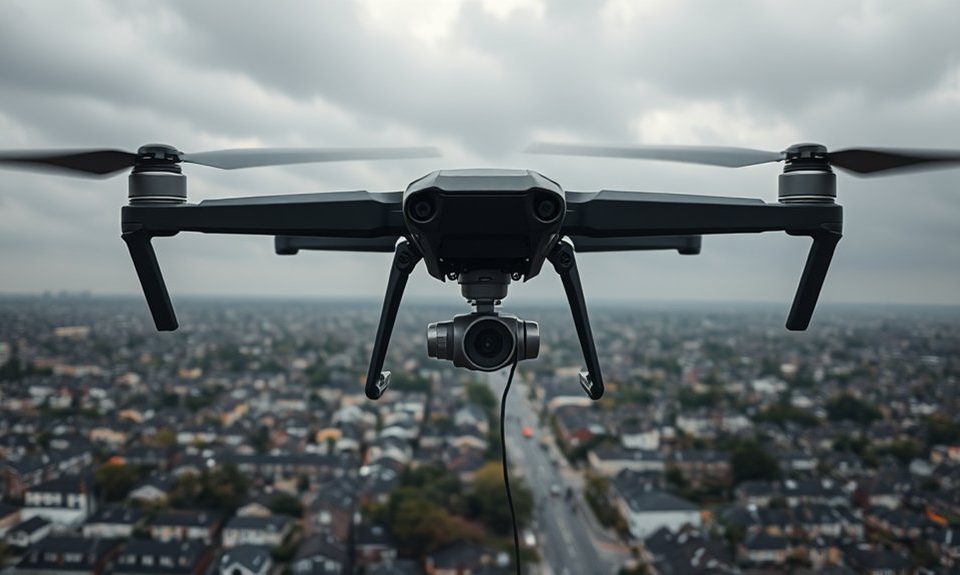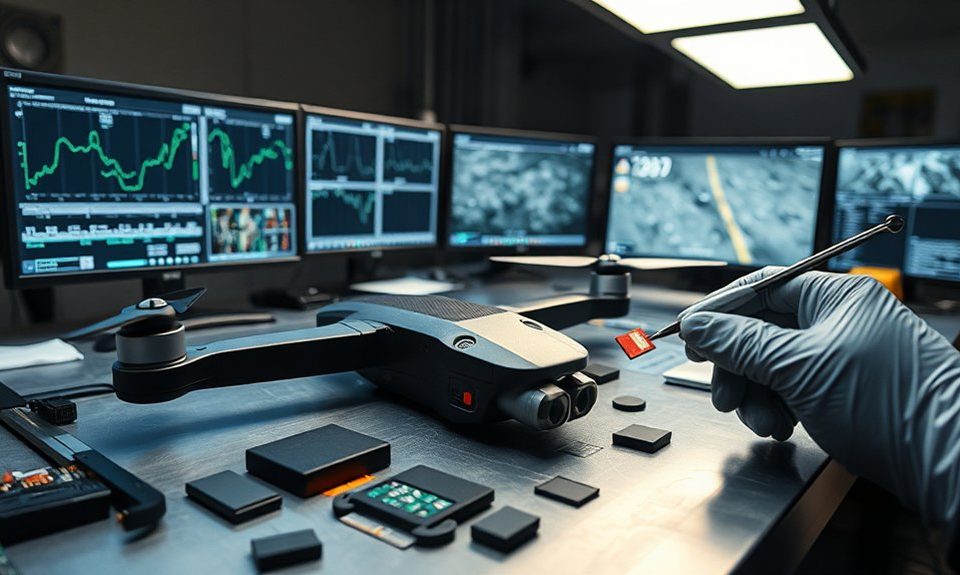Private investigators offer specialized expertise in evaluating senior care quality through systematic observation and documentation. Their methods include scheduled and unscheduled facility visits, staff interviews, background checks, and careful monitoring of daily operations. PIs utilize surveillance techniques to identify red flags, evaluate staff conduct, and analyze financial records for irregularities. Through meticulous documentation and professional analysis, investigators help families make informed decisions about their loved ones’ care. Understanding their full capabilities reveals how PIs safeguard senior care standards.
Key Takeaways
- Private investigators provide objective assessments through systematic surveillance, documentation, and monitoring of staff-resident interactions in senior care facilities.
- PIs can conduct thorough background checks on facility personnel and analyze incident reports to identify potential issues or concerns.
- Investigators use hidden camera footage analysis and strategic observation to document patterns of care quality and staff behavior.
- Professional investigators maintain detailed records of interviews, photographs, and observations to create comprehensive care quality assessments.
- PIs must operate within legal boundaries while gathering evidence, respecting HIPAA regulations and resident privacy rights.
Why Private Investigators Add Value to Senior Care Assessment

When families face concerns about the quality of care their elderly loved ones receive, private investigators bring specialized expertise and objectivity to senior care facility assessments. Their professional training in surveillance and evidence gathering allows them to document patterns of care, staff behavior, and facility conditions without emotional bias.
Investigator expertise proves particularly valuable in evaluating senior safeguards through methodical observation of security measures, staff-resident interactions, and adherence to care protocols. Private investigators can conduct thorough background checks on facility personnel, review incident reports, and systematically document any lapses in resident care or safety procedures. Their detailed findings help families make informed decisions about their loved ones’ care while providing concrete evidence should any legal or regulatory action become necessary. Leveraging their acute observation abilities, investigators excel at identifying critical details that may indicate substandard care or potential abuse.
Key Investigation Methods for Evaluating Care Facilities
Professional investigators employ systematic surveillance techniques to monitor daily operations at senior care facilities, including discreet observation of staff-resident interactions and thorough documentation of facility conditions. Through structured interviews with staff members and residents, investigators gather firsthand accounts of care quality, safety protocols, and overall facility management. These methodical approaches, combined with detailed documentation of findings through photos, notes, and recordings, create a thorough assessment framework for evaluating senior care standards. Maintaining high level confidentiality throughout the investigation process protects both residents and facilities while ensuring accurate findings.
Surveillance and Documentation Methods
Thorough surveillance and documentation form the backbone of evaluating senior care facilities effectively. Professional investigators employ systematic surveillance techniques, including scheduled and unscheduled visits during different shifts, strategic placement of cameras when legally permitted, and careful observation of staff-resident interactions. These methods reveal patterns in care quality and potential concerns.
Documentation practices must be thorough and consistent, encompassing detailed notes on daily routines, staff behavior, resident conditions, and facility maintenance. Investigators maintain organized records of interviews, photographs, video footage, and written observations. Each piece of evidence is carefully logged with dates, times, and relevant context. This methodical approach creates a reliable foundation for evaluating care standards and identifying areas requiring improvement while ensuring compliance with elder care regulations.
Interviewing Staff and Residents
Conducting structured interviews with staff members and residents provides essential firsthand insights into the quality of care delivered at senior facilities. These conversations reveal patterns in care standards, staff morale, and resident satisfaction that may not be apparent through observation alone.
Resident interviews should focus on daily routines, staff responsiveness, and overall contentment with care services. Investigators must approach these discussions with sensitivity, noting both verbal responses and non-verbal cues that might indicate underlying concerns. Staff interactions require careful documentation of workplace dynamics, training protocols, and communication systems between shifts. Questions about facility policies, emergency procedures, and resident care plans help establish whether proper protocols are being followed consistently. Investigators should conduct interviews at various times of day to capture different staff shifts and resident activity periods.
Background Check Capabilities and Staff Screening
Rigorous background checks and thorough staff screening protocols serve as critical safeguards in senior care facilities. Private investigators can effectively evaluate whether facilities maintain extensive screening processes by examining their hiring documentation and verification procedures. They assess how diligently facilities verify staff qualifications, employment history, and criminal records.
Investigators analyze the scope and frequency of background checks, determining if facilities conduct regular updates and ongoing monitoring of employee credentials. They evaluate whether the screening extends beyond direct care staff to include contractors, volunteers, and temporary workers. Additionally, they verify if facilities maintain proper documentation of all screening procedures and confirm compliance with state-mandated requirements for employee background investigations in senior care settings. Their professional investigative expertise enables them to uncover information not readily available through standard background check processes.
Documenting Daily Operations and Care Standards
Private investigators scrutinize a facility’s documentation systems to evaluate how effectively senior care providers track and record their daily operations. They examine care documentation for completeness, accuracy, and compliance with established protocols, ensuring that staff members properly record medications, treatments, and daily resident activities.
Investigators assess whether facilities maintain consistent operational standards through systematic record-keeping of staff assignments, incident reports, and resident care plans. They verify that documentation includes regular updates on residents’ physical and mental health status, dietary requirements, and social engagement activities. The review process encompasses both paper-based and electronic records, checking for proper storage, accessibility, and security measures. This thorough examination helps determine if the facility meets industry requirements while maintaining transparency in their care delivery practices. Like the private investigation agencies in South Carolina that conduct over 2,500 cases annually, these professionals employ specialized skills and technological solutions to thoroughly evaluate senior care facilities.
Red Flags That Private Investigators Can Uncover

Professional investigators utilize systematic methods to expose concerning patterns in senior care facilities through multiple channels of evidence. Their analysis of hidden camera footage can reveal staff misconduct, physical abuse, or neglect that might otherwise go undetected during routine inspections. By meticulously examining financial records and operational documents, investigators can identify suspicious billing practices, misappropriation of funds, or irregularities in expense reporting that signal potential exploitation of residents. The agency’s insurance fraud expertise enables thorough investigation of questionable Medicare billing and other financial misconduct in senior care settings.
Uncovering Staff Abuse Patterns
Skilled investigators examining elder abuse cases can uncover telltale patterns of staff misconduct through systematic observation and documentation. By monitoring staff-resident interactions over time, investigators can identify concerning behavioral patterns that may indicate abuse or neglect.
Key indicators emerge through detailed analysis of caregiver relations, including changes in staff schedules coinciding with abuse allegations, unusual clustering of incidents during specific shifts, and patterns of resident distress around particular caregivers. Investigators document irregular documentation practices, suspicious injury reports, and inconsistencies in staff explanations.
Professional surveillance reveals subtle warning signs like staff members isolating certain residents, displaying inappropriate familiarity, or exhibiting controlling behaviors. These patterns, when properly documented, help facilities address potential misconduct before it escalates into serious abuse situations.
Hidden Camera Evidence Analysis
When analyzing hidden camera footage from nursing facilities, investigators focus on several behavioral red flags that can indicate potential abuse or misconduct. They systematically review staff interactions, documenting instances of rough handling, inappropriate language, or neglectful behavior during daily care routines.
While privacy concerns and ethical implications must be carefully considered before implementing surveillance, investigators methodically evaluate patterns in staff conduct, particularly during medication administration, meals, and hygiene care. They note suspicious activities like unauthorized room entries, missing personal items, or unexplained changes in resident behavior.
The analysis extends to staff responses when residents request assistance, examining response times and the quality of care provided. Investigators also assess whether proper protocols are followed during emergencies and shift changes.
Financial Irregularities in Records
Private investigators examining nursing home financial records search for specific anomalies that may indicate fraud, theft, or misappropriation of resident funds. Through careful analysis of billing statements, expense reports, and resident trust accounts, investigators can detect patterns of financial fraud and record discrepancies that warrant further investigation.
- Unexplained withdrawals from resident trust accounts that lack proper documentation or authorization signatures
- Double billing for medical services, supplies, or medications not actually provided to residents
- Inconsistencies between staffing payroll records and actual staff present during shifts
- Suspicious patterns in vendor payments, including inflated prices or payments to fictitious companies
These irregularities often reveal systemic issues that affect the quality of care and financial well-being of vulnerable seniors, requiring immediate intervention and corrective measures.
Legal Considerations When Hiring a PI for Care Assessment
Before engaging a professional investigator to assess senior care quality, families must understand several critical legal parameters that govern surveillance activities. Private investigators must operate within strict privacy laws when monitoring care facilities or home health providers. This includes obtaining proper authorizations and respecting protected health information guidelines under HIPAA regulations.
Ethical considerations also play an essential role in determining appropriate investigative methods. While covert surveillance may be legally permissible in certain circumstances, investigators must balance the need for information against residents’ dignity and privacy rights. Families should guarantee their chosen investigator holds proper licensing, maintains professional liability insurance, and demonstrates a thorough understanding of healthcare facility regulations. Documentation of all investigative activities should be maintained to protect both the family and the investigator.
Hiring investigators with ethics training ensures proper handling of sensitive medical information while maintaining compliance with privacy laws and professional codes.
Frequently Asked Questions
How Much Does It Cost to Hire a PI for Senior Care Assessment?
Investigation fees for senior care assessments typically range from $50-150 per hour, with cost considerations including duration, location, and depth of surveillance. Most cases require 10-20 hours of investigative work.
What Qualifications Should a PI Have to Investigate Senior Care Facilities?
Private investigators evaluating senior care facilities should possess healthcare investigation experience, knowledge of elder abuse signs, surveillance techniques, facility regulations, documentation methods, and interviewing skills through specialized training and certifications.
How Long Does a Typical Senior Care Facility Investigation Take?
Investigation duration for senior care facilities typically spans two to four weeks, including thorough facility observation, staff interviews, record reviews, resident monitoring, and extensive documentation of findings.
Can Family Members Participate in the Investigation Process?
Family involvement in investigations typically remains limited to providing background information and documentation. Direct investigation roles are reserved for licensed professionals to maintain objectivity and legal compliance.
Do Senior Care Facilities Know When a PI Is Investigating Them?
Professional investigators employ varying discretion levels and covert investigative tactics, making it difficult for facilities to detect their presence. Many investigations proceed without the facility’s knowledge or awareness.
Conclusion
Private investigators serve as valuable resources for families evaluating senior care facilities, offering specialized skills in documentation, surveillance, and background screening. Through methodical observation and detailed reporting, PIs can uncover potential issues while maintaining legal compliance. Their professional assessment provides an additional layer of due diligence when selecting or monitoring elderly care services, helping families make informed decisions about their loved ones’ wellbeing.





